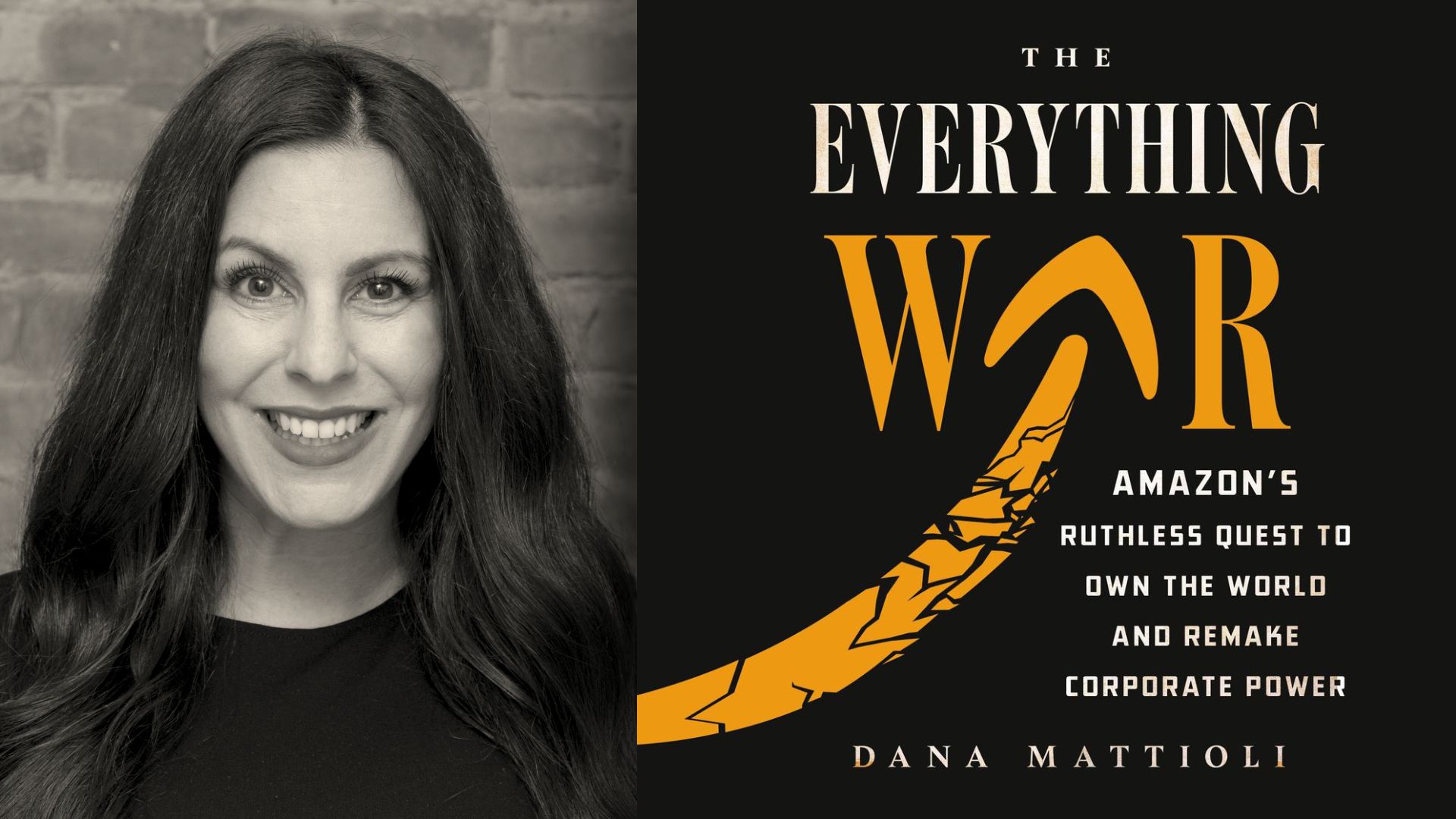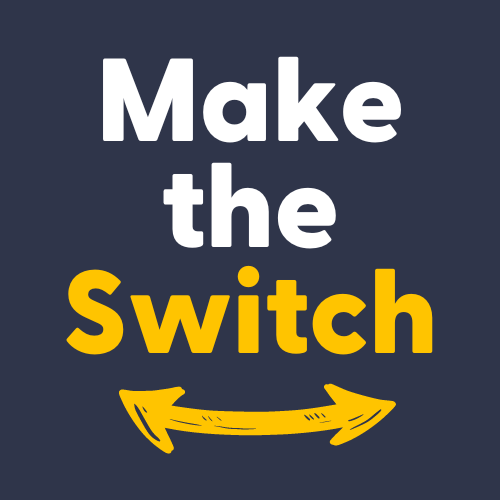
What do you wish more people knew about Amazon?
I think that many people assume that Amazon’s rise to power across so many industries was sort of predestined. I hope that my book [The Everything War] debunks that myth. Through extensive reporting – interviews with more than 600 people including many of Jeff Bezos’s direct reports and board members, coupled with hundreds of pages of internal documents – my book details that Amazon cemented its top spot across so many industries by engaging in some very aggressive, anti-competitive behaviors that crushed competition in its path. Amazon often had its finger on the scale.
What is the biggest impact Amazon has had on local bookstores? Local economies?
Bookstores were the canary in the coal mine for Amazon and an area that has been profoundly impacted by Amazon’s dominance. The vast majority of hardcover books in the U.S. are sold on Amazon. More than 80% of all ebooks are sold on Amazon.com. Amazon has altered the economics of bookselling globally.
I detail the plight of one independent bookstore owner in my book who was such a bright spot in her community. She hosted local book clubs, threw the poetry festival every year and had toddler book readings. Her bookstore served as a meeting place for the local community where children and adults alike made their core memories….We chronicle her store’s demise and eventual closure because of Amazon. As she put it: “Amazon was selling books for just the cost of postage.”
As stores like hers closed – and this has played out…worldwide – these leave gaping holes in our communities and social fabrics. It is the bookstores and local merchants that sponsor the local little league teams, that employ members of their communities and help generate local sales tax for local projects like road works, public schools, fire departments, etc. Between 2007 and 2017, about 40% of the U.S.’s small apparel, toy, and sporting goods makers disappeared, along with about one-third of small book publishers, according to a report by the Institute for Local Self-Reliance. That has a real impact on local communities.
Why should readers consider shopping with other retailers this Prime Day?
One interesting part of reporting out this book is learning how hard it is for third-party sellers on Amazon.com to make a living selling on Amazon.com. They feel like they need to be there because 40% of all online sales in the U.S. are on Amazon, but Amazon takes 45 cents of every dollar in revenues they make selling on Amazon.com. These sellers would make a much higher margin – and would prefer – if shoppers bought directly from them on their own websites, or in some cases other retailers that carry their goods. What we’ve noticed is that while Prime Day originated with Amazon, many other retailers also have large sales on the same day, so there could be equally good deals available at other retailers.
What do you suggest readers do if they are concerned about the dominance of Amazon?
In the epilogue of my book I detail how hard it is to avoid Amazon for a week even if you tried to. They deliver more packages than FedEx and UPS, they own the largest cloud-computing company in the world, so if you take a Lyft rideshare or watch Netflix, it is powered by their cloud. They have gotten into healthcare and pharmacy. Consumers are likely interacting with Amazon even when they don’t know it. I think for readers who are concerned about Amazon’s dominance, it would make sense to take an inventory of all of the ways they are interacting with Amazon – from streaming videos on Prime to shopping on Amazon.com and exploring alternatives. One really powerful stance to take is to shop local.
What books do you recommend for further reading on the topic?
There are a number of really great books on Amazon, such as Brad Stone’s The Everything Store and Alec MacGillis’ Fulfillment. I also would suggest reading books about antitrust and corporate monopolies. A great one is Ron Chernow’s Titan about Standard Oil’s John Rockefeller and muckraker Ida Tarbell’s The History of the Standard Oil Company which presents her investigations into the oil giant in book form.
Do you think there is a future in which Amazon exists in a more ethical/sustainable manner? Or at this point, is that not possible?
I think there would have to be a concerted effort to completely overhaul the culture at Amazon in order for that to be the case. Many of the predatory behaviors in my book are driven by the company’s culture. I have covered companies for nearly 18 years at the [The Wall Street Journal] and I have never encountered such an aggressive and cutthroat culture as I have at Amazon (and I used to cover investment banks!). They use stack ranking, they backload stock and there is a real fear of being axed. This is a pressure cooker that causes some employees to do whatever they can to stay ahead and keep their jobs. Even if current CEO Andy Jassy wanted to change the culture – and I am not sure he does – it would take years to reverse the ways that Amazon employees are conditioned to behave and to win.
If you’re auditioning for your job each day against equally brilliant coworkers, it could be hard to resist taking a look at data you’re not supposed to see and copying a product. It could be difficult to “forget” intelligence you learned in deal talks and not use it in your own product. It could be hard to kick sellers off your website selling dangerous goods since they are padding your numbers.
Do you have a favorite local bookstore?
I love bookstores. They are a total happy place for me. One of my favorite local bookstores is McNally Jackson, especially their Seaport location which is so well curated and very cozy. I love grabbing a coffee there and exploring the books and sitting down to read.
About Dana Mattioli
Dana Mattioli has been a reporter for The Wall Street Journal since 2006. She has written investigative pieces and front page stories about Amazon since 2019 and was a finalist for the Pulitzer Prize in Investigative Journalism for her work on Amazon. Her Amazon coverage also received the 2021 Gerald Loeb Award for Beat Reporting. In 2021, she received the WERT Prize, an award from the Women’s Economic Round Table that honors excellence in comprehensively reported business journalism for her Amazon investigations, and received a Front Page Award for her Amazon coverage.
Prior to covering Amazon, Dana held one of the WSJ’s highest profile beats covering mergers & acquisitions. During her 16-year career at WSJ she has produced a string of investigations and page one stories on CEOs, boards of directors, technology companies and retailers. Dana is the recipient of a second Gerald Loeb award for breaking news, the SABEW breaking news award, two New York Press Club awards and was a finalist for the Larry Birger Young Business Journalist Award. Dana has appeared on CNBC, Good Morning America, Fox Business News, and Cheddar. She was the subject of a Wall Street Journal advertisement campaign about how the newspaper’s highest-profile stories came together.







